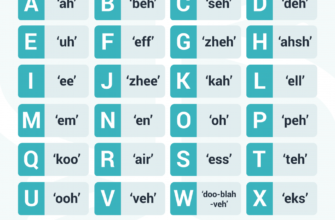When I decided to travel abroad, I knew that improving my language fluency would be essential for making the most out of my experience. I wanted to communicate effectively with locals, understand their culture, and navigate through daily life seamlessly. Luckily, I discovered a few simple language hacks that significantly improved my fluency during my time abroad.
- Immerse Yourself in the Language: One of the most effective ways to improve language fluency is to immerse yourself completely in the language. I made a conscious effort to surround myself with native speakers, listen to local music and podcasts, and watch movies and TV shows in the language I was learning. This constant exposure helped me pick up new words, improve my pronunciation, and become familiar with colloquial expressions.
- Practice Speaking with Natives: While immersing myself in the language was helpful, it was equally important to practice speaking with native speakers. I sought out language exchange programs, joined conversation groups, and even hired a language tutor for regular practice sessions. These interactions not only improved my speaking skills but also helped me gain confidence in my ability to communicate effectively.
- Expand Your Vocabulary: Building a strong vocabulary is key to fluency in any language. To expand my vocabulary, I made it a habit to learn a few new words and phrases every day. I would write them down in a notebook or use flashcards to review them regularly. Additionally, I tried to use these new words in daily conversations to reinforce my learning.
Another helpful language hack I used to improve my fluency was using mnemonics and visualization techniques. Instead of memorizing vocabulary and grammar rules by rote, I created vivid mental images or associations to help me remember them better. For example, to remember the word for “cat” in the language I was learning, I visualized a cute cat playing with a ball of yarn.
“Immerse yourself in the language, practice speaking with native speakers, expand your vocabulary, and use mnemonics and visualization techniques to improve your fluency.”
Lastly, I found that setting specific, achievable goals was essential for measuring my progress and staying motivated. Whether it was learning a certain number of words each week or having a 10-minute conversation entirely in the language, these goals provided a sense of achievement and kept me on track.
| Hack | Description |
| Immerse Yourself in the Language | Surround yourself with native speakers, listen to local media, and watch movies and TV shows in the language you’re learning. |
| Practice Speaking with Natives | Join language exchange programs, conversation groups, or hire a language tutor for regular practice sessions. |
| Expand Your Vocabulary | Learn new words and phrases every day, write them down, and use them in daily conversations. |
| Use Mnemonics and Visualization Techniques | Create mental associations or vivid images to help remember vocabulary and grammar rules. |
| Set Specific Goals | Set achievable goals that help measure progress and keep you motivated. |
- Language Learning Tips
- Immerse Yourself
- Learn how to fully immerse yourself in a foreign language
- Make Friends
- Find out how making local friends can boost your language skills
- Practice Every Day
- Explore the importance of daily language practice while abroad
- Think in the Target Language
- Discover how changing your thought process can enhance language fluency
Language Learning Tips

-
Immerse Yourself: Surround yourself with the language as much as possible. This could mean watching movies or TV shows in the target language, listening to podcasts or music, or even finding a language exchange partner to practice speaking with.
-
Set Goals: Set specific goals for yourself and track your progress. For example, you could aim to learn a certain number of new words each week, or to have a conversation with a native speaker within a certain time frame. Having clear goals will help keep you motivated and focused.
-
Practice Regularly: Consistency is key when it comes to language learning. Try to incorporate language practice into your daily routine, even if it’s just for a few minutes. This could be as simple as reviewing flashcards, reading a newspaper article, or listening to a language-learning podcast during your commute.
Remember, language learning is a journey, and everyone learns at their own pace. Don’t be too hard on yourself if you make mistakes or struggle at times. Stay committed, stay curious, and enjoy the process!
Immerse Yourself
Here are a few ways you can immerse yourself in a foreign language:
- Live with native speakers: By living with native speakers, you are constantly exposed to the language and have the opportunity to practice speaking and listening on a daily basis. This type of immersion can greatly accelerate your language learning.
- Find language exchange partners: Language exchange partners are native speakers who are learning your native language. You can meet up with them regularly to practice speaking. This way, you both benefit from the exchange, as you can correct each other’s mistakes and learn from one another.
- Watch movies and TV shows: Watching movies and TV shows in the target language can help you improve your listening comprehension and expose you to different accents and dialects. You can start with subtitles in your native language and gradually switch to subtitles in the target language as your understanding improves.
- Listen to podcasts and music: Listening to podcasts and music in the target language can also help improve your listening skills. You can choose topics that interest you and follow along with the conversations or lyrics. This will help you pick up new vocabulary and phrases.
By immersing yourself in the language, you are creating an environment where you are constantly exposed to the language and forced to use it. This type of immersion can drastically improve your fluency and confidence in speaking the language.
Learn how to fully immerse yourself in a foreign language
- Surround yourself with the language: Make an effort to surround yourself with the language as much as possible. This can include listening to music and podcasts in the target language, watching movies and TV shows, and reading books and newspapers. By exposing yourself to the language in different formats, you will improve your listening and reading comprehension skills.
- Practice speaking with native speakers: Find opportunities to practice speaking with native speakers of the language. This can be through language exchange programs or by joining local language groups. Speaking with native speakers will help you improve your pronunciation and grammar, and will also give you the chance to learn slang and idiomatic expressions.
- Travel to a country where the language is spoken: One of the best ways to immerse yourself in a foreign language is to travel to a country where the language is spoken. Being surrounded by native speakers and hearing the language spoken all around you will greatly improve your language skills. Take the time to interact with locals, order food in restaurants, and ask for directions. The more you use the language in real-life situations, the more confident you will become.
Make Friends
- Join language exchange groups: Look for language exchange groups or meetups in your area. These groups bring together people who are interested in learning each other’s languages. It’s a great way to practice your speaking skills and meet new people.
- Be open and friendly: When meeting new people, it’s important to be approachable and friendly. Smile, make eye contact, and show genuine interest in getting to know the other person. This will create a positive and welcoming atmosphere for conversation.
- Use language-learning apps: There are many language-learning apps available that can help you connect with language partners or find local events. These apps often have a messaging feature, allowing you to practice your writing skills and build relationships with native speakers.
When making friends, it’s important to remember that building relationships takes time and effort. Be patient and persistent in practicing your language skills with your new friends, and don’t be afraid to make mistakes. It’s all part of the learning process!
Find out how making local friends can boost your language skills
Making friends with locals can help you improve your language skills in a variety of ways:
- Real-life conversations: Interacting with locals allows you to engage in authentic conversations, exposing you to colloquial expressions, slang, and cultural references that you might not encounter in a classroom setting. This can help you become more comfortable with the language and expand your vocabulary.
- Cultural insights: Being friends with locals gives you the opportunity to learn about their customs, traditions, and way of life. This cultural exchange can deepen your understanding of the language and its usage in different contexts, enhancing your overall language proficiency.
- Immediate feedback: When conversing with native speakers, you can receive instant feedback on your language skills. They can correct your pronunciation, grammar, and usage, helping you identify and correct any errors or weaknesses. This immediate feedback is invaluable in improving your fluency and accuracy.
Practice Every Day
Here are some strategies I found helpful for incorporating daily practice into my routine:
- Language Exchange: Finding a language exchange partner can be a fun and effective way to practice your language skills. By regularly meeting with a native speaker, you can engage in conversation and gain confidence in your fluency.
- Daily Vocabulary: Another useful practice is to learn new vocabulary every day. This could involve keeping a notebook and writing down new words you encounter, or using language learning apps that provide daily vocabulary exercises.
- Immersive Activities: Engaging in immersive activities can help you improve your language skills while doing things you enjoy. This could include watching movies or TV shows in your target language, listening to podcasts, or reading books. The more you expose yourself to the language, the more comfortable you will become with it.
Consistent practice is essential for improving fluency in a new language.
| Strategy | Description |
|---|---|
| Language Exchange | Meet with a native speaker to practice conversation skills |
| Daily Vocabulary | Learn new words regularly through note-taking or language learning apps |
| Immersive Activities | Engage in activities such as watching movies or reading books in the target language |
Explore the importance of daily language practice while abroad
One of the most effective ways to practice language daily while abroad is through conversation with native speakers. This can be achieved by making friends with locals, participating in language exchange programs, or enrolling in language courses. Engaging in regular conversations not only helps improve pronunciation and vocabulary, but also provides opportunities to learn about local customs and traditions.
- Regular language practice: Consistent practice allows individuals to reinforce what they have learned and build upon their language skills. Daily language practice helps individuals become more comfortable and confident in using the language in various situations.
- Improved fluency: By practicing every day, individuals can improve their ability to speak and understand the language in a more natural and authentic way. This helps in developing fluency and enables individuals to express themselves more effectively.
- Cultural understanding: Through daily language practice, individuals can gain a deeper understanding of the local culture and customs. Language is closely tied to culture, and by learning the language, individuals can better appreciate and connect with the people and society around them.
Think in the Target Language

One of the most effective language hacks I used to improve my fluency abroad was thinking in the target language. Rather than constantly translating in my head, I made a conscious effort to think in the language I was trying to learn. This helped me to think more naturally and fluently, and it also helped me to better understand and connect with native speakers.
To practice thinking in the target language, I would often have internal conversations with myself, imagining different scenarios and trying to express my thoughts and opinions in the language. I would also try to immerse myself in the language as much as possible, reading books and articles, watching movies and TV shows, and listening to podcasts or music in the target language.
- Benefits of thinking in the target language:
- Improved fluency and natural conversation flow
- Better understanding of native speakers
- Increased confidence in using the language
- Enhanced vocabulary and grammar skills
By making a conscious effort to think in the target language, I was able to absorb the language more effectively and become more proficient in my conversations. It became easier to express myself and understand others, and it ultimately boosted my overall fluency in the language.
Discover how changing your thought process can enhance language fluency

-
Think in the target language: Instead of translating everything in your head, try to think directly in the target language. This will help you become more familiar with the language’s structure and vocabulary, and ultimately improve your fluency. For example, when you see an object, think of its name in the target language rather than in your native language. Gradually, you will start thinking in the target language without even realizing it.
-
Embrace mistakes: Many language learners feel discouraged when they make mistakes. However, making mistakes is a natural part of the learning process and should be embraced. Instead of getting frustrated or embarrassed, view mistakes as opportunities for growth and learning. Take note of the mistakes you make and learn from them. By shifting your mindset, you can overcome the fear of making mistakes and become more confident in using the language.
-
Immerse yourself in the language: Surround yourself with the target language as much as possible. This can be done by listening to music, watching movies or TV shows, reading books, or even joining language exchange programs. Immerse yourself in the language and make it a part of your daily life. The more exposure you have to the language, the better your fluency will become. Embrace opportunities to practice speaking with native speakers and challenge yourself to use the language in different contexts.
Changing your thought process can have a significant impact on your language fluency. By thinking in the target language, embracing mistakes, and immersing yourself in the language, you can enhance your language skills and become more fluent in communication. Remember, language learning is a journey, and with the right mindset, you can achieve your goals and become proficient in the language.









